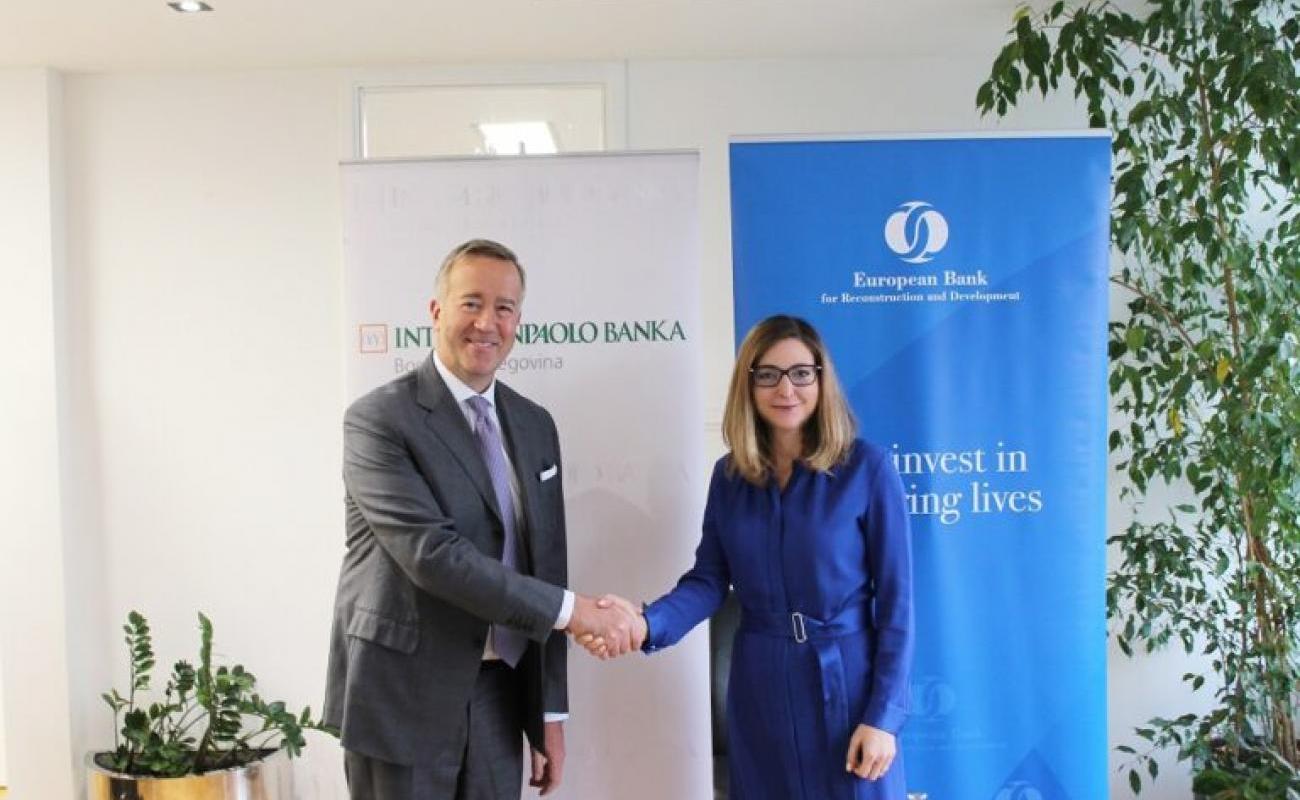EBRD lends €8 million to Intesa Sanpaolo Banka in Bosnia and Herzegovina

- Loan under the Go Digital in BiH programme to promote the digitalisation of SMEs
- Investments in digital and green technologies to boost SME competitiveness
- EU grants to help make investments more affordable
The European Bank for Reconstruction and Development (EBRD) has welcomed Intesa Sanpaolo Banka, a member of the Intesa Sanpaolo Group, to its Go Digital in Bosnia and Herzegovina programme, which helps small and medium-sized businesses (SMEs) invest in becoming more digitalised and competitive.
The bank is extending an €8 million loan to Intesa Sanpaolo Banka for on-lending to local small businesses. SMEs will be able to apply for funds to invest in new equipment and upgrades that can help them boost productivity, cut operational costs and improve their alignment with EU standards.
SMEs will also benefit from grant incentives worth up to 15 per cent of the total loan amount, funded by the European Union (EU).
Manuela Naessl, EBRD Head of Office for Bosnia and Herzegovina, said: “We are delighted that Intesa Sanpaolo Banka is joining our Go Digital in BiH initiative and that its SME clients will be able to benefit from our loans and EU grant incentives. We are united in our ambition to increase the competitiveness of local small businesses by helping them to invest and innovate.”
Marco Trevisan, president of the Management Board of Intesa Sanpaolo Banka, said: “We have made another step forward in our cooperation with the EBRD by focusing on the small and medium business segment. The new Go Digital credit line agreed with the EBRD will help existing and potential SME customers of the Bank to raise their market competitiveness by enabling them to make their operations easier, investing in automation and digitalisation and turning to green economy investments.”
The credit line is being extended under the EBRD- and EU-funded Go Digital in Bosnia and Herzegovina Programme, part of the EU4SMEs programme. The EBRD has secured €40 million in loans, while the EU has secured grants of €9 million for incentive payments, advisory services and technical assistance. The programme is accompanied by activities from Germany’s Gesellschaft für Internationale Zusammenarbeit (GIZ), which will work with the government and stakeholders to help build an ecosystem for digitalisation, automation and innovation in Bosnia and Herzegovina, including digital innovation hubs.
The programme contributes directly to the European Commission’s Digital Agenda for the Western Balkans, which aims to support the transition of the private sector and help businesses fully secure the benefits of the digital transformation of the economy.
